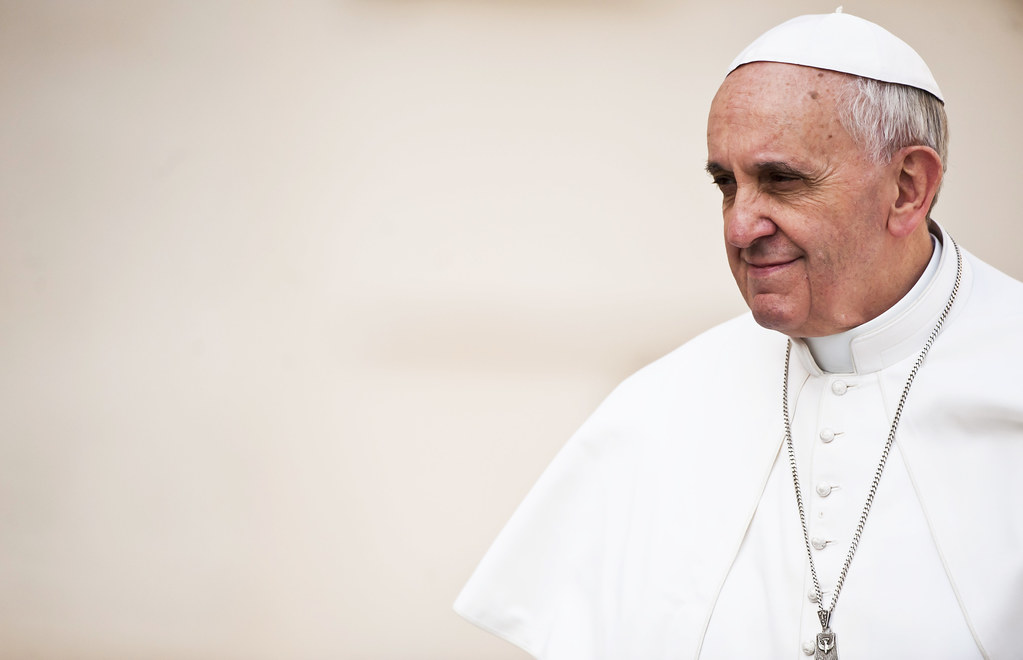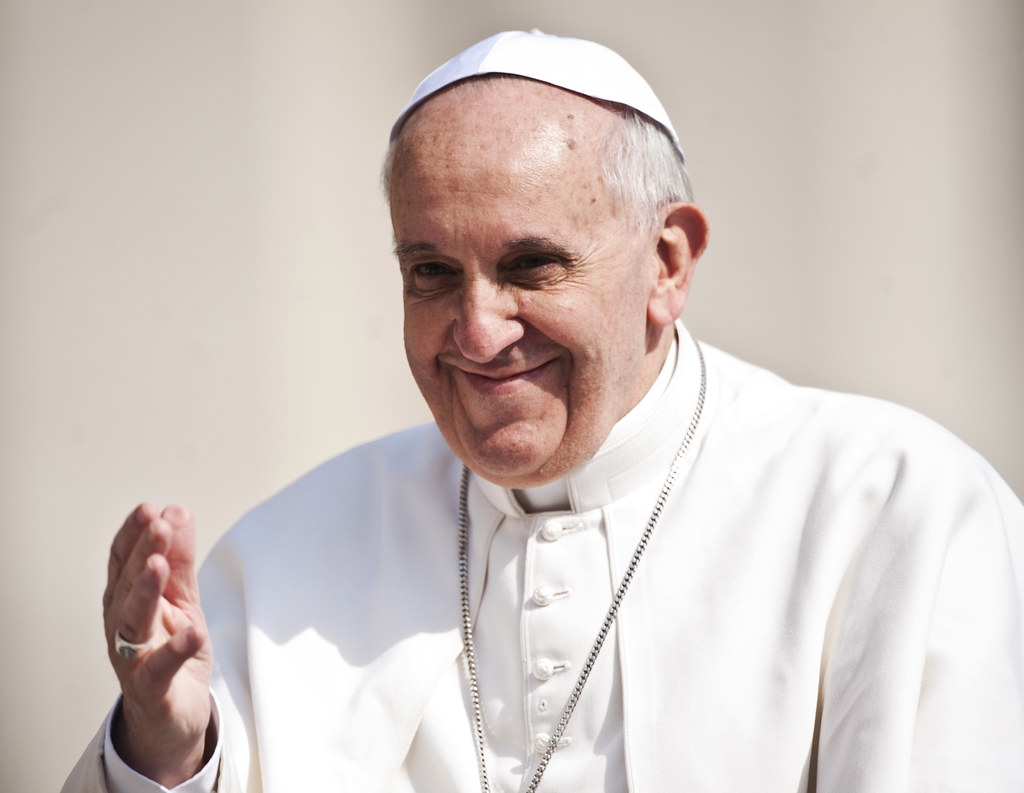In an era marked by escalating conflicts and divisive rhetoric, Pope Francis has once again emerged as a beacon of hope and wisdom. While recovering from pneumonia in hospital, the pontiff—now 88 years old—has used his personal battle with illness as a moment for profound reflection and a clarion call for global peace.
A Message from the Heart of the Vatican
The letter, which was published by Italy’s newspaper of record, arrives at a critical juncture. With tensions simmering in various parts of the world, Pope Francis’ message stresses that the consequences of unchecked verbal aggression and incendiary discourse are as destructive as any physical weapon. He emphasizes that the media, as the primary architects of public discourse, bear a significant responsibility. “Words are never just words,” he notes; they are the building blocks of our human environments, capable of connecting communities or tearing them apart. In his view, the media must not only report facts but also appreciate the profound impact their words have on shaping perceptions and realities.
Disarming the World, One Word at a Time
At the core of his appeal lies a metaphorical disarmament—a call to eliminate the harmful rhetoric that fuels hatred and violence. Pope Francis suggests that true peace begins with the careful use of language. In his thoughtful reflection, he explains that when we choose our words with care, we lay the groundwork for understanding and reconciliation. His invitation to “disarm words” is a plea for individuals and institutions alike to recognize that the narratives we create can either mend the fractures in society or widen them further. By disarming our verbal weapons, we disarm the minds that would otherwise be swayed by divisiveness, thereby contributing to a safer and more harmonious world.

The Weight of War and the Need for Diplomacy
The Pope’s reflections extend beyond the realm of language and media. He draws a stark comparison between the devastating impacts of war and the potential for words to foster peace. While war leaves behind communities in ruins and irreversible damage to the environment, it rarely offers solutions to the underlying causes of conflict. Instead, he argues, diplomacy and international organizations require a revitalized approach—one that reestablishes credibility and fosters meaningful dialogue. In urging world leaders to seek alternatives to military confrontation, Pope Francis highlights that the path to peace is paved with commitment, work, and the quiet power of sincere conversation.
A Testament to Human Fragility and Resilience
For Pope Francis, this message carries additional weight as he himself confronts the frailties of the human body. Hospitalised since mid-February at Rome’s Gemelli Hospital, his ongoing battle with pneumonia has not only challenged his physical strength but also deepened his understanding of life’s ephemeral nature. The pontiff’s personal struggle, marked by intermittent crises and the need for constant oxygen support, has provided him with a unique perspective on the fleeting nature of human existence. In his letter, he poignantly observes that moments of illness and vulnerability can clarify what truly matters—teaching us to distinguish between that which is transient and that which endures.
Gratitude Amidst Turbulence
In a gesture that underscores his humility and gratitude, Pope Francis extends his thanks to Luciano Fontana, the director of the Corriere, to whom his letter was addressed. This acknowledgment is more than a courteous nod; it represents a broader call for solidarity among all who are in positions to influence public opinion and shape our collective future. The pontiff’s expression of thanks is an invitation for journalists and media professionals to shoulder their responsibility with a renewed sense of purpose—to report with accuracy, sensitivity, and an awareness of the weight their words carry.
A Timely Reminder for Responsible Journalism
The timing of this message is especially significant. In today’s fast-paced digital landscape, where information—and misinformation—spreads at an unprecedented rate, the call for measured and responsible journalism has never been more critical. Pope Francis warns that every word uttered in public discourse contributes to the environment in which societies live, breathe, and evolve. The media, therefore, must “feel the full importance of words” and remain vigilant about the narratives they propagate. His reflections serve as a sobering reminder that the stories we tell are not merely accounts of events but can be catalysts for either unity or discord.
Bridging the Divide with a Call for Reflection
The Pope’s letter is, in many ways, a call for reflection—an appeal to all who find themselves caught in the whirlwind of modern conflict to pause, reflect, and reassess their approach to communication and conflict resolution. He suggests that true peace is not achieved through grandiose declarations or empty rhetoric, but through thoughtful engagement and genuine dialogue. His insistence on calmness and a sense of complexity is a reminder that the world’s challenges cannot be solved by simplistic slogans or polarized narratives. Instead, they require a deeper, more nuanced understanding of the interplay between words, emotions, and actions.
Health and Healing: A Parallel to Global Recovery
The Pope’s current health struggles mirror, in many respects, the state of the world he so earnestly wishes to heal. Just as his body is engaged in a delicate process of recovery, so too must the global community work collectively to mend the fractures wrought by years of conflict and discord. His steady progress—marked by moments when he can breathe on his own and the gradual reduction in his oxygen needs—serves as a hopeful metaphor. It suggests that even in the face of severe adversity, recovery is possible through perseverance, care, and the willingness to change. In this light, his call to “disarm” is not merely a denunciation of violence but a hopeful vision for a future where dialogue and diplomacy replace destruction and despair.

A Vision for a More Compassionate World
Ultimately, Pope Francis’ message is one of compassion—a call to embrace the inherent fragility of the human condition and to use that awareness as a foundation for building a more compassionate world. He envisions a global community where the power of language is harnessed for healing rather than harm. In a time when the specter of war looms large over many nations, his words serve as both a warning and an inspiration: a warning of the dangers of careless speech and a reminder that peace requires not only strategic negotiations but also a fundamental shift in how we communicate with one another.
Conclusion: A Plea for Unity in Turbulent Times
As the world watches the health of Pope Francis with bated breath, his latest message transcends the immediate concerns of his physical condition. It challenges us all to look beyond our differences and to recognize that our words, actions, and decisions shape the very fabric of our societies. His call to “disarm words, to disarm minds and disarm the Earth” is a timeless reminder that true peace is cultivated not through violence or aggression, but through understanding, empathy, and the courage to change. In the midst of political strife, media sensationalism, and the relentless pace of modern life, the Pope’s words stand as a beacon of hope—a gentle yet firm plea for us all to pause, reflect, and ultimately choose a path of unity over division.
In this moment of personal vulnerability and global uncertainty, Pope Francis’ heartfelt appeal reaches out to every corner of the earth, inviting us to reimagine a world where dialogue triumphs over discord, and where the healing power of carefully chosen words can mend even the deepest wounds. His vision of peace is not an abstract ideal but a concrete challenge to all of us: to harness our collective strength, to engage in honest reflection, and to work tirelessly for a future where conflicts are resolved not with force, but with the quiet, persistent power of love and understanding.










